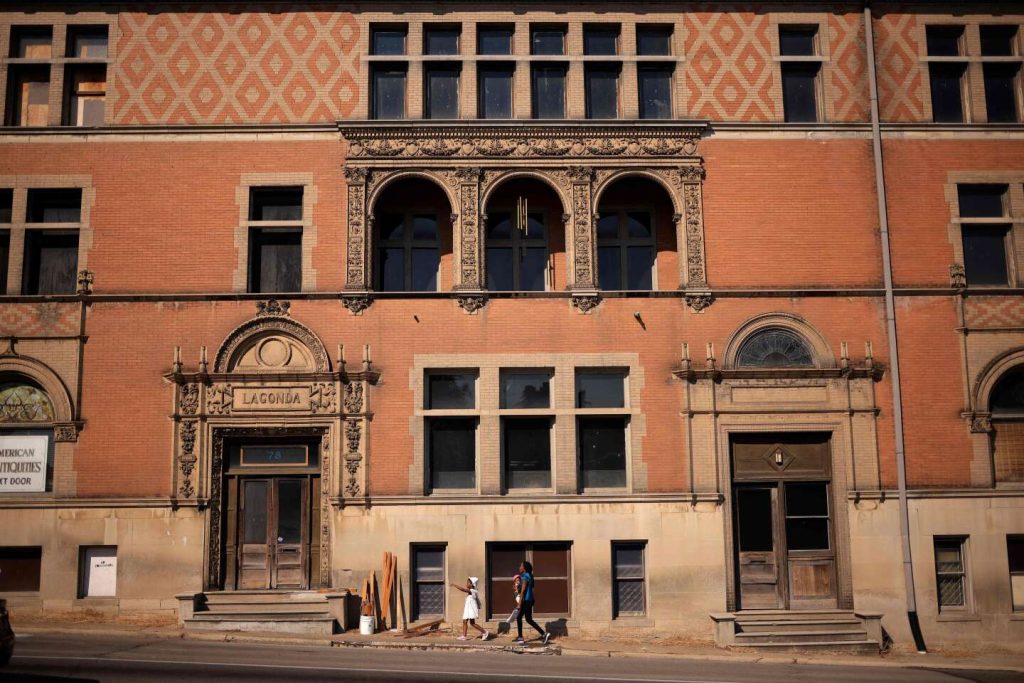Springfield was once a bustling city in Ohio, known for its industrial economy and diverse population. However, recent events have shaken the community to its core. A false rumor spread by former President Donald Trump during a televised debate with Kamala Harris has sparked fear and chaos in the city. Trump claimed that Haitians in Springfield were eating pets, leading to a wave of bomb threats, cancellations of cultural events, and school closures. The community of Haitians, who are at the center of the controversy, has been overwhelmed by the outpouring of support from across the country.
In the midst of the crisis, Rose-Thamar Joseph, the director of operations at the Haitian community center, is struggling to keep up with hundreds of emails offering support and solidarity. She emphasizes that the entire community of Springfield is suffering from the situation, not just the Haitian population. Viles Dorsainvil, the executive director of the center, has been working tirelessly to coordinate with authorities and provide guidance to residents. He advises people to take precautions such as installing alarms and cameras, leaving lights on outside at night, and traveling in groups to ensure safety.
Despite the challenges they face, the community leaders in Springfield remain resilient. Viles Dorsainvil acknowledges the presence of a small group of supremacists in the city who are opposed to diversity and integration. Recent incidents of vandalism and intimidation have added to the tense atmosphere. However, he stresses the importance of staying strong and united in the face of adversity. The situation in Springfield highlights the deep-seated issues of racism and polarization that plague communities across America.
Located between Dayton and Columbus, Springfield has a complex history shaped by economic shifts and social dynamics. Once a thriving industrial hub with a population of 80,000, the city has faced hardships due to the decline of the manufacturing sector and subsequent job losses. The population has dwindled to 60,000 residents as a result. Despite these setbacks, Springfield has shown resilience and adaptability in the face of adversity. The current crisis has forced the community to confront its demons and come together to address the underlying issues that threaten its stability.
The events unfolding in Springfield serve as a microcosm of the larger challenges facing America today. The spread of misinformation, the rise of extremism, and the erosion of trust in institutions are all issues that permeate society at large. The community in Springfield is grappling with these issues in real-time, forced to navigate a landscape of fear and uncertainty. As they work to rebuild and heal, the residents of Springfield are faced with the daunting task of confronting their shared past and forging a path forward that is inclusive, resilient, and just.















